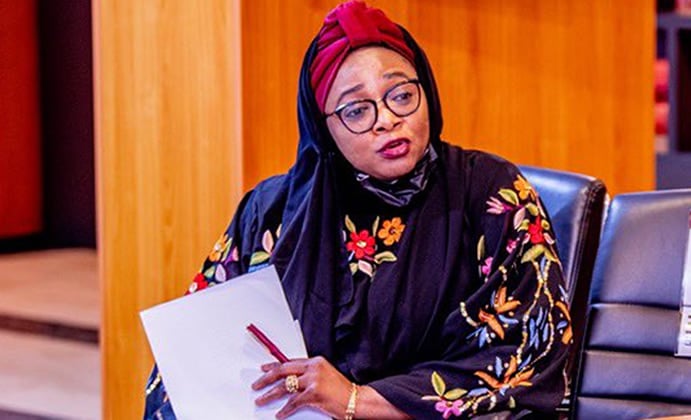Despite playing a major role in Nigeria’s agricultural sector, women continue to earn just a fraction of the industry’s total output, according to Minister of Women Affairs and Social Development, Imaan Sulaiman-Ibrahim.
Speaking in Abuja at a National Workshop on Agro-value Chain Capacity Building—organized by the Federal Ministry of Women Affairs and the Organisation of Islamic Cooperation—the minister highlighted the persistent imbalance facing women in agriculture.
She pointed out that although women make up the majority of the agricultural workforce and are key contributors to production, their earnings remain significantly lower. Sulaiman-Ibrahim emphasized that women are often sidelined when it comes to access to land, agricultural financing, and policy support—issues she says are the products of systemic gender bias.
“Women account for 70% of Nigeria’s agricultural workforce, and 80% of the sector’s total production, yet these efforts often go unrewarded,” she stated.
“Women receive 30% less pay for the same work as men. Only 10% have ownership rights over farmland, and a mere 10% gain access to agricultural finance.”
“These barriers may not always be intentional, but their impact is real. When policies and investments ignore gender perspectives, women are systematically left behind,” the minister explained.
Sulaiman-Ibrahim announced that through the Women Agro Value Expansion Initiative (WAVE), the current administration under President Bola Tinubu is working to empower 10 million women throughout the agricultural value chain, equipping them to thrive as entrepreneurs and leaders in the sector.
She called on stakeholders to support the initiative, urging participants at the workshop to embrace the new opportunities. The minister reaffirmed President Tinubu’s commitment to creating the supportive policies and systems essential to advancing Nigeria.
Abdullah Mohammed, National Programme Manager of WAVE, echoed these goals, highlighting the initiative’s ambition. He explained that the program is designed to help women transition from subsistence farming to becoming high-earning, commercially successful producers.
Mohammed noted that over the next five years, WAVE aims to reach 10 million women and put N10 trillion directly into their hands—with the expectation that this investment could yield over N40 trillion annually for the country through the multiplier effect.
“Our goal is to inject N10 trillion into women’s agricultural enterprises and ensure that this expands into over N40 trillion in annual returns,” he said.
He added that WAVE is structured as a partnership between the government, under the Ministry of Women Affairs, and private sector players like SMK Farms, Hafaz Farms, and Easy Sales Export. This collaborative approach, he said, is crucial for scaling the program and driving real change.
Mohammed also emphasized the program’s focus on sustainability. Beneficiaries will receive tailored start-up kits—specific to their region and agricultural focus, whether it be grain farming, fisheries, poultry, or livestock. These kits are designed to maximize productivity and suitability for local conditions.
“Every participating woman will receive the right tools for her area, and with each production cycle, more resources will be reinvested into their projects,” he explained.
He assured that all beneficiaries would be closely supported for up to five years, as the program aims to help them achieve financial independence and cultivate an enduring culture of agricultural entrepreneurship among women and families nationwide.










